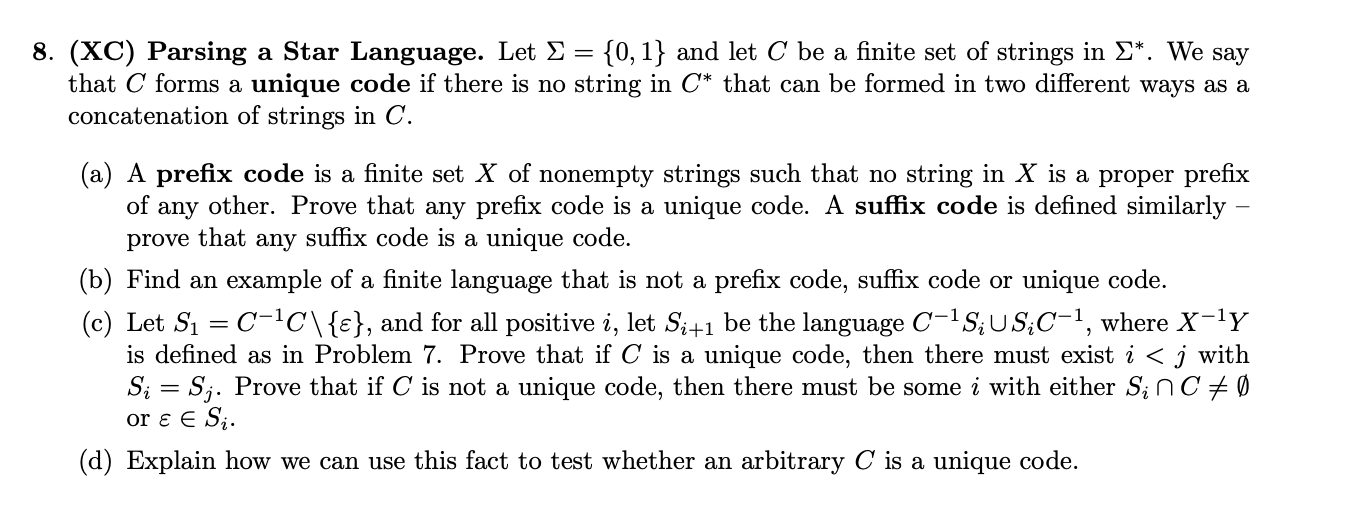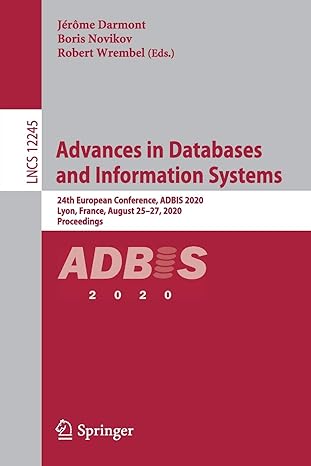Answered step by step
Verified Expert Solution
Question
1 Approved Answer
( XC ) Parsing a Star Language. Let = { 0 , 1 } and let C be a finite set of strings in *
XC Parsing a Star Language. Let and let be a finite set of strings in We say
that forms a unique code if there is no string in that can be formed in two different ways as a
concatenation of strings in
a A prefix code is a finite set of nonempty strings such that no string in is a proper prefix
of any other. Prove that any prefix code is a unique code. A suffix code is defined similarly
prove that any suffix code is a unique code.
b Find an example of a finite language that is not a prefix code, suffix code or unique code.
c Let and for all positive let be the language where
is defined as in Problem Prove that if is a unique code, then there must exist with
Prove that not a unique code, then there must some i with either
Explain how can use this fact test whether arbitrary a unique code.

Step by Step Solution
There are 3 Steps involved in it
Step: 1

Get Instant Access to Expert-Tailored Solutions
See step-by-step solutions with expert insights and AI powered tools for academic success
Step: 2

Step: 3

Ace Your Homework with AI
Get the answers you need in no time with our AI-driven, step-by-step assistance
Get Started


